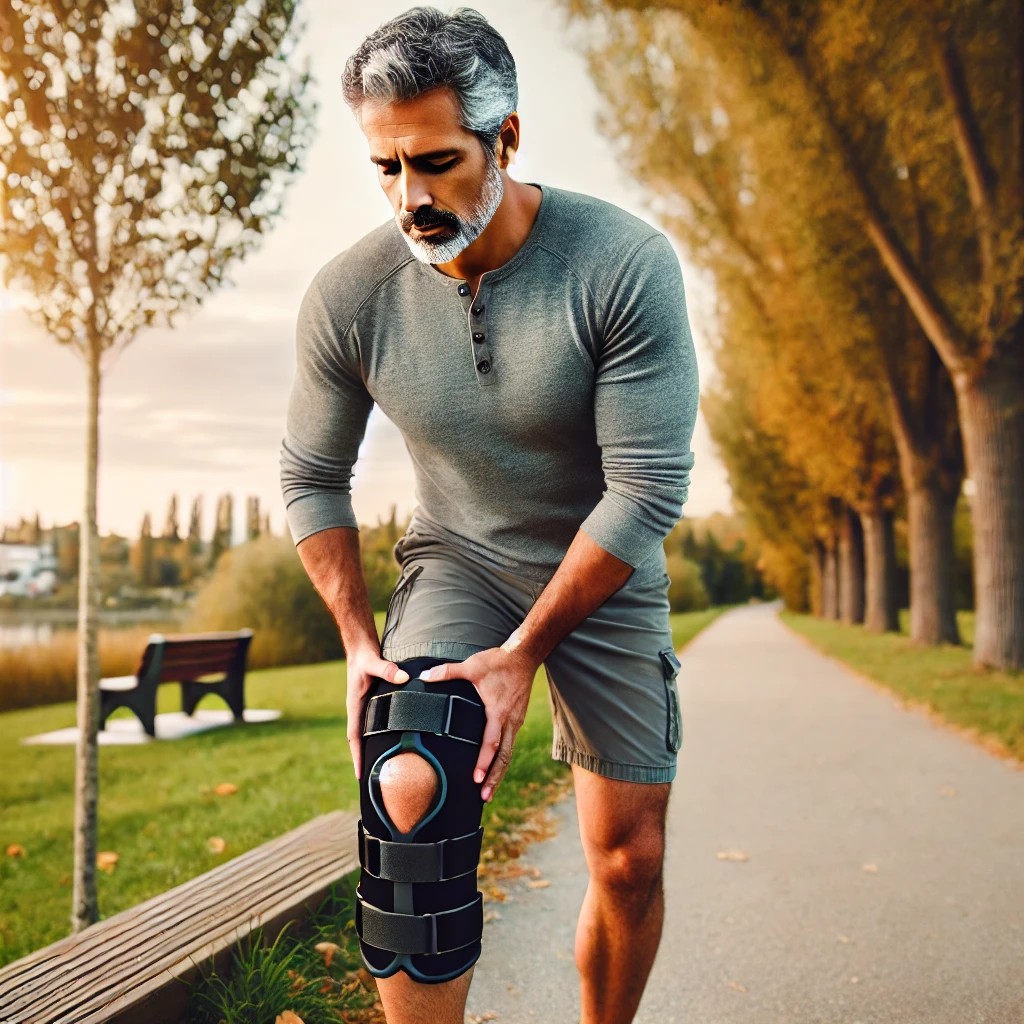5 Powerful Benefits of Walking: The Key to Longevity and Vibrant Health
Feb 11, 2025
Table of Contents
- Introduction: Why Walking is the Ultimate Longevity Hack
- Benefit #1: Walking Increases Lifespan and Reduces Disease Risk
- Benefit #2: Walking Supports Weight Loss and Mental Health
- Benefit #3: Walking Improves Heart Health and Circulation
- Benefit #4: Walking Enhances Brain Function and Prevents Cognitive Decline
- Benefit #5: Walking Strengthens Joints, Muscles, and Bone Health
- Conclusion: Step Into a Healthier Future
Introduction: Why Walking is the Ultimate Longevity Hack
Did you know that walking daily could add more than 10 years to your life? Research published in the British Journal of Medicine confirms that walking is one of the simplest, least expensive, and most effective ways to enhance longevity, prevent disease, and improve overall well-being.
Unlike high-intensity workouts, walking is accessible to everyone, requires no equipment or gym membership, and has been practiced for centuries in some of the longest-living communities worldwide. In this article, we’ll explore the five most powerful benefits of walking and share real-life stories that show that walking isn’t just exercise, it’s a game-changer for health and longevity.
Benefit #1: Walking Increases Lifespan and Reduces Disease Risk
Walking isn’t just about burning calories—it reduces the risk of chronic diseases that contribute to early mortality. Walking has been shown to lower the risk of heart disease, stroke, and diabetes. But what’s even more compelling is how walking improves longevity in some of the world’s longest-living populations.
Case Study: Sardinian Centenarians & Their Walking Lifestyle
In Sardinia, Italy, one of the world’s Blue Zones (regions known for extraordinary longevity), daily walking isn’t just a habit—it’s a way of life. Sardinian centenarians live well past 100 years old with lower rates of heart disease, dementia, and obesity.

Their secret? They naturally walk miles every day—often uphill—while doing daily chores, visiting neighbors, or tending their gardens. Sardinian shepherds, for instance, often walk five miles or more each day, which provides cardiovascular benefits and improves metabolism, muscles, and bones. Unlike gym workouts, the Sardinian’s movement is effortless and ingrained in their culture, suggesting that consistent, natural walking contributes to a longer, healthier life. In fact, this finding seems consistent across other longevity hot spots. Additionally, the hilly terrain of Sardinia may further promote cardiovascular health and overall well-being.
This consistent physical activity along with lean and plant-forward eating and strong family values seems to contribute to the exceptional longevity observed in Sardinian communities.
💡 Takeaway: Increase your physical activity level by walking daily—even for short distances—to reduce disease risk and boost longevity.
Benefit #2: Walking Supports Weight Loss and Mental Health
Walking is an inexpensive tool for weight management. Studies show that walking boosts metabolism, burns calories, and regulates insulin levels, making it an excellent choice for those looking to lose weight without extreme dieting or workouts.
But beyond physical health, walking is also a powerful tool for mental well-being. Regular walking reduces stress, anxiety, and depression by increasing endorphins and serotonin—your body’s natural mood boosters. On a personal note, my daily walking has been tremendously helpful with addressing stress.

Heather's Story: Walking in Nature as Therapy
Heather, a 62-year-old mother and grandmother, struggled with depression and weight gain. She discovered that walking in nature provided a sense of calm and significantly improved her mood. By joining local walking groups and exploring green spaces, Heather lost 4.5 stone (approximately 63 pounds) and experienced a remarkable improvement in her mental well-being. She even managed to come off her antidepressant medication as her depression lifted. Heather describes walking in nature as her therapy, helping her feel at peace and lowering her stress levels. Heather's experience highlights the impact that regular walking, especially in natural settings, can have on both physical health and mental well-being.
Heather’s original story is shared here.
💡 Takeaway: Walking is not just a physical activity—it’s a mental health booster and a weight loss tool all in one.
Benefit #3: Walking Improves Heart Health and Circulation
Heart disease remains the leading cause of death worldwide for women and men, but the good news is that walking can dramatically improve cardiovascular health.
Regular walking can:
✅ Lowers blood pressure
✅ Reduces bad cholesterol (LDL)
✅ Improves circulation
✅ Strengthens the heart muscle
According to the American Heart Association, walking 30-45 minutes daily can cut your risk of heart disease by nearly 50%.

💡 Takeaway: A simple daily walk is one of the most effective ways to protect your heart and circulation. Consider breaking up your walk if you have limited time.
Benefit #4: Walking Enhances Brain Function and Prevents Cognitive Decline
Boost Your Brain Health with Every Step
Did you know that walking helps prevent dementia and cognitive decline? We also have evidence that guides us on the optimal number of steps. A 2022 study of adults assessed with wrist-worn accelerometers found that more steps were associated with a decline in dementia risk (up to 9800 steps per day, beyond which the benefits upturned). The study also found that steps taken at a higher intensity also lowered the risk of dementia. One belief is that walking increases blood flow to the brain, which enhances memory, and boosts creativity.

💡 Takeaway: Walking isn’t just good for your body—it’s one of the best ways to keep your brain sharp as you age.
Benefit #5: Walking Strengthens Joints, Muscles, and Bone Health
As we age, joint pain, muscle loss, osteoarthritis, and osteoporosis become common concerns.
Walking helps by:
✅ Strengthening bones to prevent osteoporosis
✅ Lubricating joints to reduce arthritis pain
✅ Building muscle strength to maintain mobility
A study in Arthritis & Rheumatology found that walking just 6,000 steps a day can reduce the risk of developing mobility-related disabilities by nearly 50% in individuals with or at risk for knee arthritis. The study demonstrated that walking played an important role in maintaining mobility and preventing disability, especially among those with knee osteoarthritis.

💡Takeaway: Walking is a low-impact, joint-friendly way to keep your body strong and mobile for years to come.
Conclusion: Step Into a Healthier Future
Walking may be simple, but its benefits are profound. Whether you’re walking to improve your heart health, manage weight, boost mental health, protect your brain, or strengthen your joints, it’s clear that walking every day is one of the best things you can do for longevity.
So, how many steps do you take daily? Let us know in the comments below!
Dr. Diane Thompson, MD is board-certified in Physical Medicine and Rehabilitation with a subspecialty in Brain Injury Medicine. She is also board-certified in Lifestyle Medicine and Age Management Medicine and a certified health coach who helps women over 50 use Lifestyle Medicine and longevity science to reverse and help control chronic diseases and age healthfully. She is the author of this Amazon bestseller.
Disclosure: The information presented is for educational purposes and is not meant for diagnosis or treatment. No physician-patient relationship is intended. Discuss with your physician prior to making any changes to your health. Some of the links in this blog may be affiliate links, which are of no additional cost to you and allow me to keep the content free. These are products I’ve personally used.
🚀 Do you need my help with Lifestyle Medicine Coaching and Consulting to improve your health, help with disease management or weight loss, and promote healthy aging? Click this link
Subscribe to MoRadiance® Woman Newsletter, the #1 newsletter for women over 50 who are looking for the latest strategies to maintain health, wellness, radiance, and longevity as they age. Each month I will share the latest age-management and lifestyle medicine strategies in your inbox.
